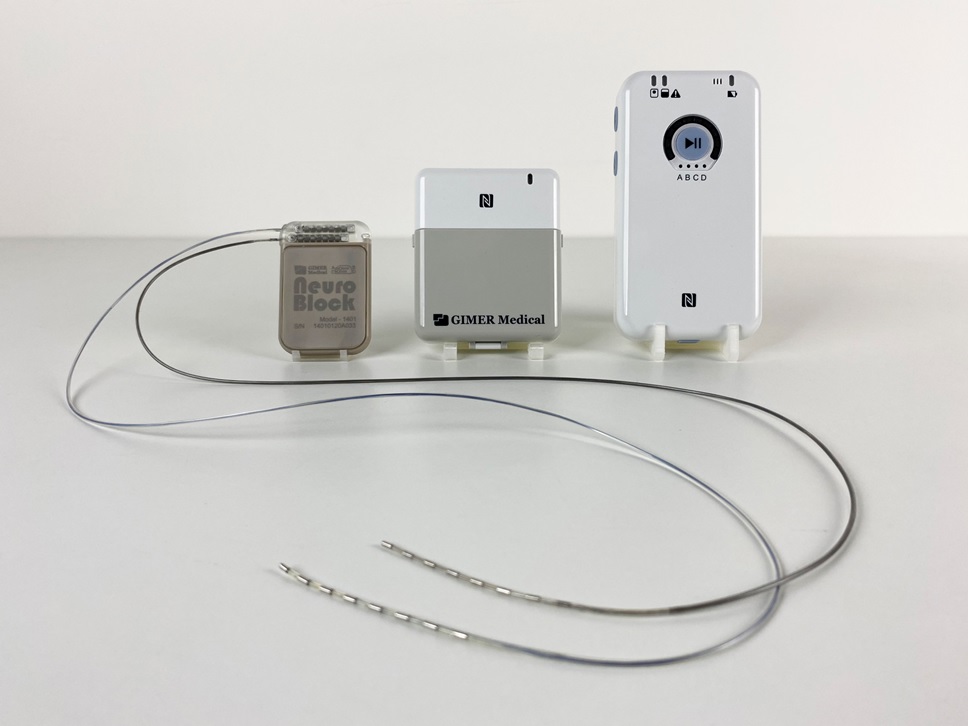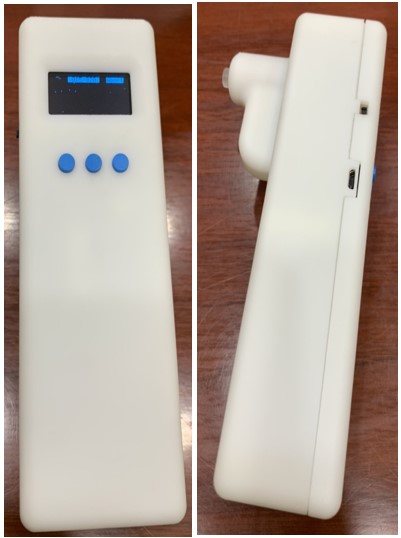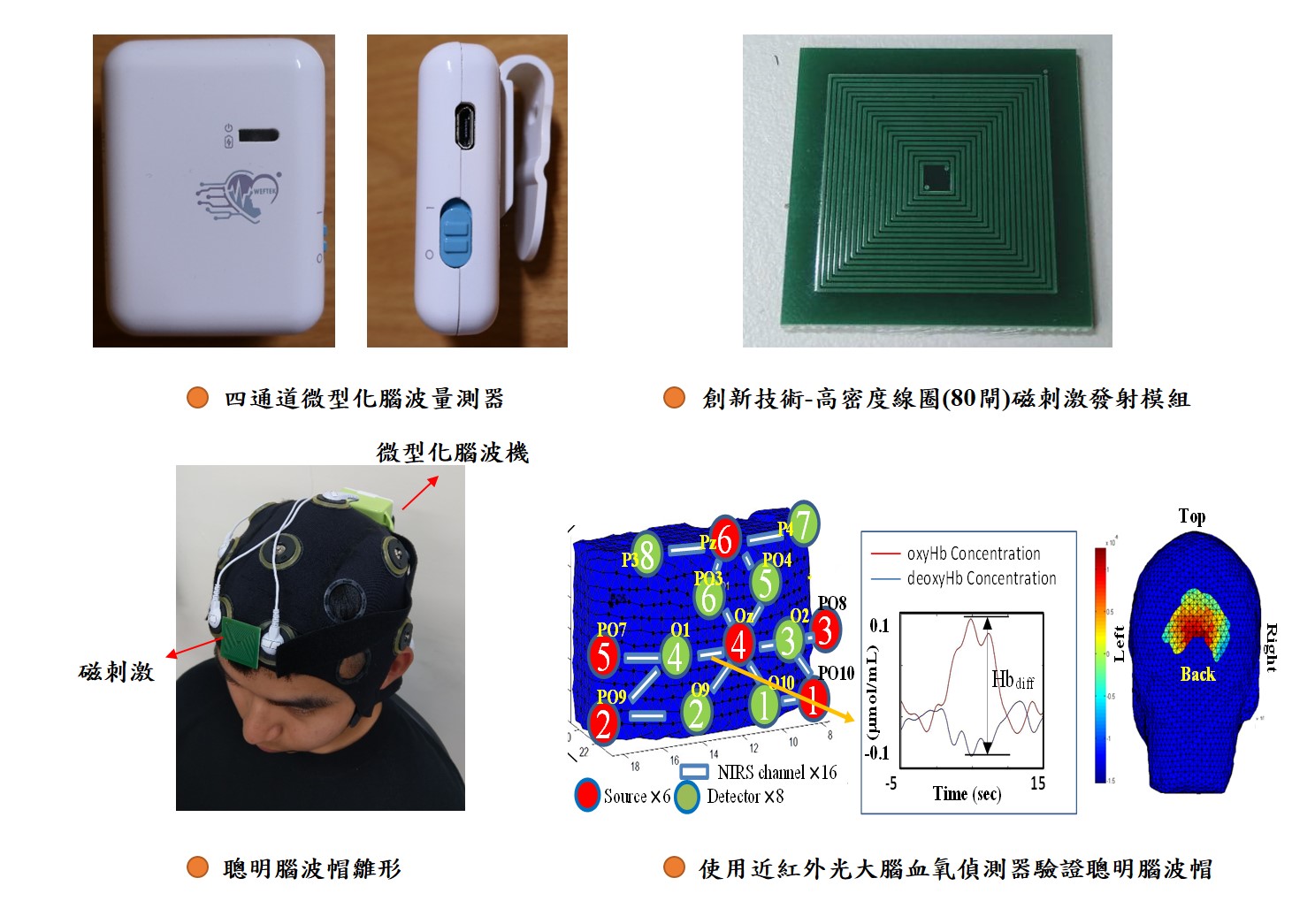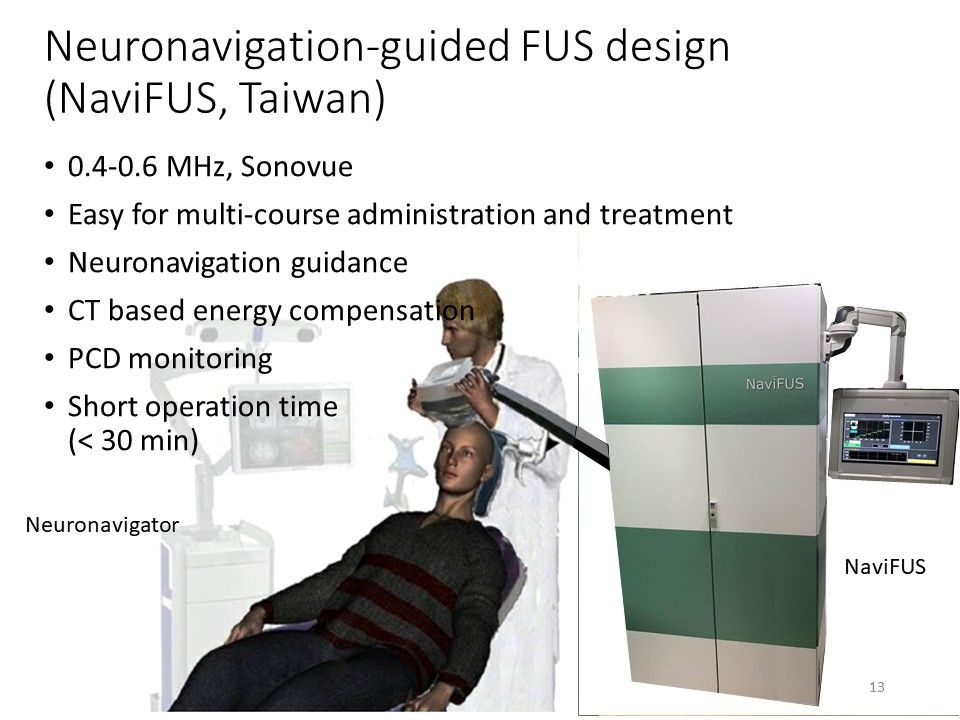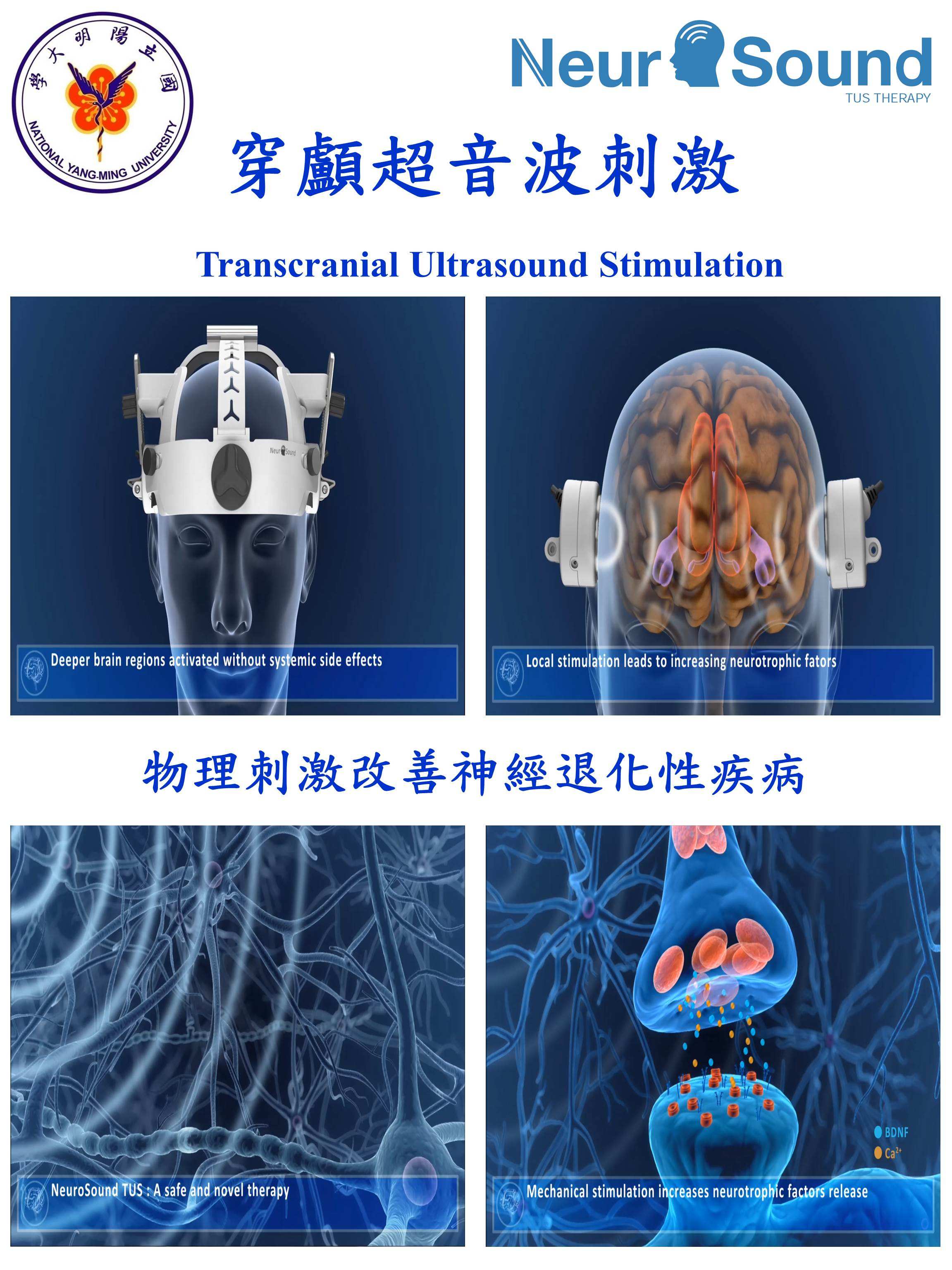| Technical Name | Use of low-intensity pulsed ultrasound (LIPUS) in treating and/or preventing neurodegenerative diseases | ||
|---|---|---|---|
| Project Operator | National Yang-MIng University | ||
| Project Host | 楊逢羿 | ||
| Summary | Low-intensity pulsed ultrasound (LIPUS) has been shown to induce neuroprotective effects against brain injurycognitive dysfunction in rats by increasing BDNF protein levels in the brain. We demonstrated that LIPUS treatment significantly prevented memory impairmentcognitive dysfunction by transcranial ultrasound stimulation. |
||
| Scientific Breakthrough | This technology provides the possibility that manipulation of BDNF by transcranial ultrasound stimulation (TUS) might provide a new therapeutic strategy for treating dementia. Thus, the generation of endogenous BDNF via LIPUS stimulation may represent a novel noninvasive technique for treating patients with diseases of the CNS. |
||
| Industrial Applicability | The neuroprotective effects of transcranial ultrasound stimulation (TUS) may be attributed partially to its enhancement of BDNF level. Our results suggest that TUS could be a promising new technique for treating brain disorders associated with decreased BDNF level in Alzheimer's disease. |
||
| Keyword | |||
- futuretech.most@gmail.com
other people also saw

